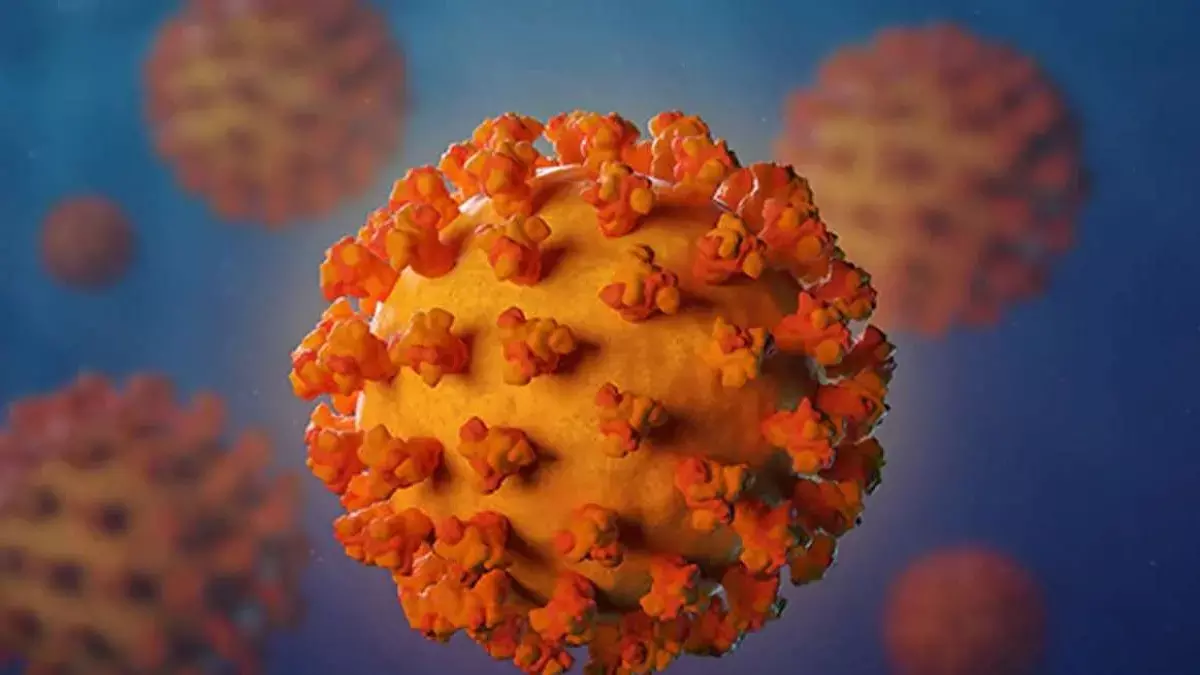- Home
- Medical news & Guidelines
- Anesthesiology
- Cardiology and CTVS
- Critical Care
- Dentistry
- Dermatology
- Diabetes and Endocrinology
- ENT
- Gastroenterology
- Medicine
- Nephrology
- Neurology
- Obstretics-Gynaecology
- Oncology
- Ophthalmology
- Orthopaedics
- Pediatrics-Neonatology
- Psychiatry
- Pulmonology
- Radiology
- Surgery
- Urology
- Laboratory Medicine
- Diet
- Nursing
- Paramedical
- Physiotherapy
- Health news
- Fact Check
- Bone Health Fact Check
- Brain Health Fact Check
- Cancer Related Fact Check
- Child Care Fact Check
- Dental and oral health fact check
- Diabetes and metabolic health fact check
- Diet and Nutrition Fact Check
- Eye and ENT Care Fact Check
- Fitness fact check
- Gut health fact check
- Heart health fact check
- Kidney health fact check
- Medical education fact check
- Men's health fact check
- Respiratory fact check
- Skin and hair care fact check
- Vaccine and Immunization fact check
- Women's health fact check
- AYUSH
- State News
- Andaman and Nicobar Islands
- Andhra Pradesh
- Arunachal Pradesh
- Assam
- Bihar
- Chandigarh
- Chattisgarh
- Dadra and Nagar Haveli
- Daman and Diu
- Delhi
- Goa
- Gujarat
- Haryana
- Himachal Pradesh
- Jammu & Kashmir
- Jharkhand
- Karnataka
- Kerala
- Ladakh
- Lakshadweep
- Madhya Pradesh
- Maharashtra
- Manipur
- Meghalaya
- Mizoram
- Nagaland
- Odisha
- Puducherry
- Punjab
- Rajasthan
- Sikkim
- Tamil Nadu
- Telangana
- Tripura
- Uttar Pradesh
- Uttrakhand
- West Bengal
- Medical Education
- Industry
Acute severe COVID-19 infection seems to have prolonged recovery: BMJ study

The clinical features of hospitalised patients with COVID-19 have been well described in various studies ; however, less data are available on the recovery period of patients after discharge. Mallia et al from Imperial College,London found that symptomatic, radiographic and biochemical recovery times following COVID-19 infection are prolonged with older age and more severe acute illness is associated with non-recovery.
The studies of recovered patients that are available in literature have described a prolonged burden of symptoms following hospital discharge. However, some features of recovery which are less well characterised include the rate of recovery of symptoms, recovery in non-hospitalised patients and patients without a positive PCR swab, biochemical and haematological recovery and healthcare utilization. Hence the researchers in this study collected symptomatic, radiographic, biochemical and healthcare utilisation data from patients with COVID-19 who attended a follow-up clinic after discharge from hospital.
In this retrospective cohort study , patients with COVID-19 diagnosed by PCR testing or clinical criteria who were being treated at Imperial College Health Care Trust Hospital were eligible if they consented for followup after discharge from hospital.
Among 401 patients, 76.3% had a positive RTPCR test and median age was 59 years with a male preponderance. Most patients (315, 78.5%) were in the Level I (admitted with ward care) group; 38 (9.5%) were Level II/III (admitted ,invasive/non-invasive ventilation), out of which 32 were intubated and 48 (12%) patients were in the Emergency Department-only group. During follow up visits,among the Level II patients, 109 (35.0%) were seen <42 days-early group,79(25.3% were seen 42-56 days),124(39.7%) were seen 56days post discharge.
Important findings of the study are:
1. 301 (75.5%) patients had mild–moderate disease based on assessment of chest radiograph and 310 (77.3%) required a maximum FiO2 ≤0.4.
2. 47.4% of patients had an abnormal chest radiograph,21% had a high CRP, 16.7% had a high ferritin and 34.8% had a high D-dimer level.
3. 49 (12.2%) patients were investigated for venous thromboembolism in hospital of which 13 (3.3%) were positive. At followup,12 CT pulmonary angiogram were done out of which 2 patients had pulmonary embolism.
4. The majority of patients(75%) with COVID-19 are still symptomatic at a median of 53 days post discharge and 72 days after symptom onset. Most common persistant symptoms at follow-up being breathlessness, cough, fatigue and chest pain.
5. 40.8% of patients reported not returning to their pre illness exercise tolerance level and 18.5% of patients had unscheduled healthcare visits in the 30 days post discharge.
6. Upon analysis it was found that significantly more patients in early group had cough compared to late group. Also, the prevalence of abnormal chest radiographs fell significantly with increased length of time from hospital discharge.
7. Patients with greater severity of illness (CRP, NEWS2, lymphocyte count, chest radiograph severity, oxygen requirement, intubation) during admission were more likely to have an abnormal chest radiograph on follow-up.
8. 45% of chest radiographs were abnormal at follow-up. There was a similar prevalence of abnormal chest radiographs in PCR positive and PCR-negative patients. Patients with more severe acute illness and older patients were more likely to have radiographic abnormalities.
This study provides a guide to clinicians as to expected recovery time from COVID-19, reduce unscheduled healthcare visits and investigations, ensure that PCR-negative patients and non-hospitalised patients are also followed up with a special target on high-risk patients.
Source:BMJ
MBBS, M. D. Respiratory Medicine
Dr Sravan Kumar V, completed his M. B. B. S from SRMC, Nandyal and M. D. in Respiratory Medicine from the JSS Medical College, Mysore. After completing MD. he worked as Senior resident in Kasturba Hospital, Manipal. He is actively involved in various research activities of the department. Currently he is working as senior resident in Mallareddy medical college for women, Hyderabad. He can be contacted at editorial@medicaldialogues.in.
Dr Kamal Kant Kohli-MBBS, DTCD- a chest specialist with more than 30 years of practice and a flair for writing clinical articles, Dr Kamal Kant Kohli joined Medical Dialogues as a Chief Editor of Medical News. Besides writing articles, as an editor, he proofreads and verifies all the medical content published on Medical Dialogues including those coming from journals, studies,medical conferences,guidelines etc. Email: drkohli@medicaldialogues.in. Contact no. 011-43720751


